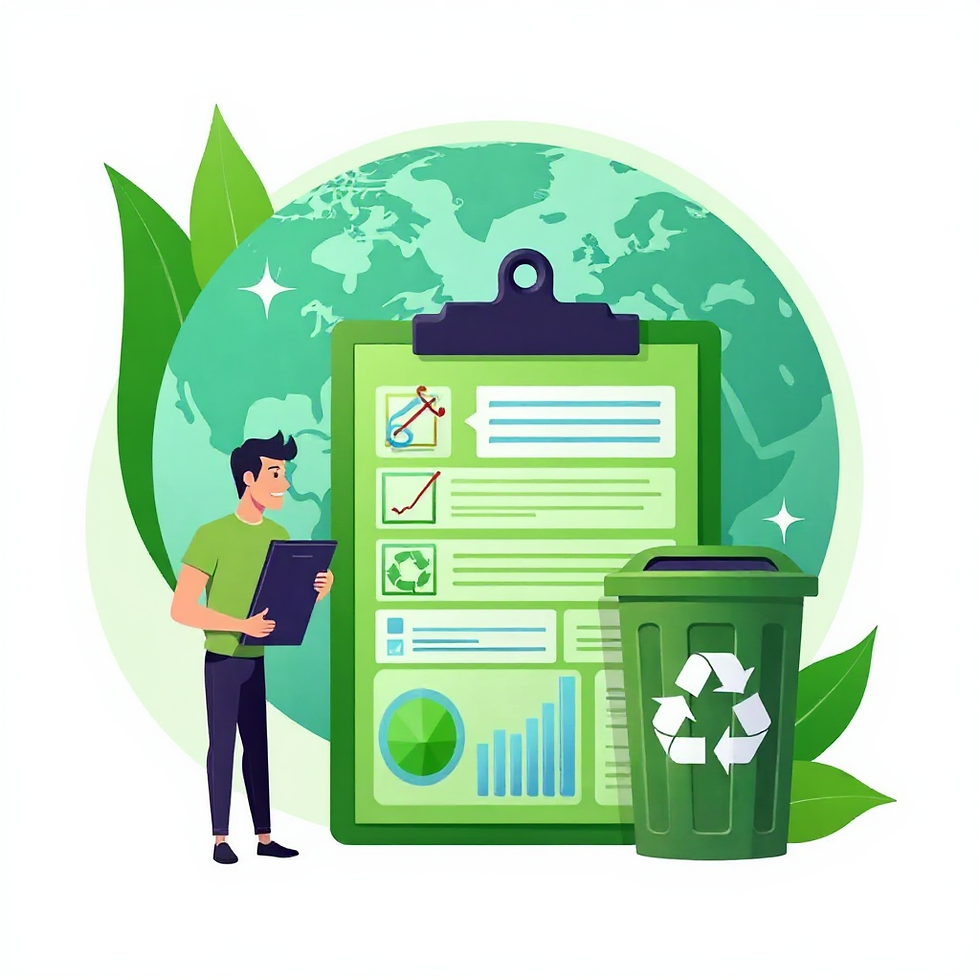Waste Audits: Waste Less, Win More!
- Ree

- Jul 22
- 2 min read
In the pursuit of leaner operations and smarter resource management, one area remains largely ignored: waste. Not just environmental waste, but process waste, material leftovers, and inefficiencies quietly draining profit margins from behind the scenes.
It's our goal to wake organisations up to the fact that waste is no longer just a cost to be buried, but instead an opportunity waiting to be uncovered.

What is a Waste Audit and why should you care?
A waste audit is an in-depth assessment of the materials, by-products, and inefficiencies generated throughout a company’s operations. It’s not just about bins and skips, it’s about uncovering where resources are being underused, misused, or discarded unnecessarily.
From excess packaging to valuable materials being thrown away, Waste Audits can reveal the inefficiencies resulting in lost revenue. When done right, they can unlock:
Reduced operating expenses
New revenue streams from recycled or resold materials
Improved compliance with regulatory and ESG requirements
How to Get Started
Simple - Download the Ree Waste Audit tool.
This will give you an good starting point to help give you an idea of where you currently are with your waste. The next step is more in-depth, with Ree providing a full Waste Audit program to help you:
Map your waste streams. Where does waste originate in each process?
Quantify the impact. Use data to assign dollar values to loss points.
Involve cross-functional teams. Sustainability, operations, finance—all have pieces of the puzzle.
Look for low-hanging fruit. Reuse opportunities, packaging changes, donation programs.
You don’t need a million-dirham tech solution. You need curiosity, data, and a mindset that sees waste not as inevitable, but as an opportunity.
Operational Efficiency Is the New Sustainability
Efficiency and sustainability aren’t at odds they’re allies. As consumers and investors demand cleaner practices, companies that prioritise waste audits can not only show fiscal responsibility but also plan for a waste free future...who doesn't want that?
If your team hasn’t explored the untapped value in its waste streams, now might be the perfect time. After all, Jas's favourite quote (changed a little to fit this context) is;
"You can't improve what you don't measure"
_edited.png)



Comments